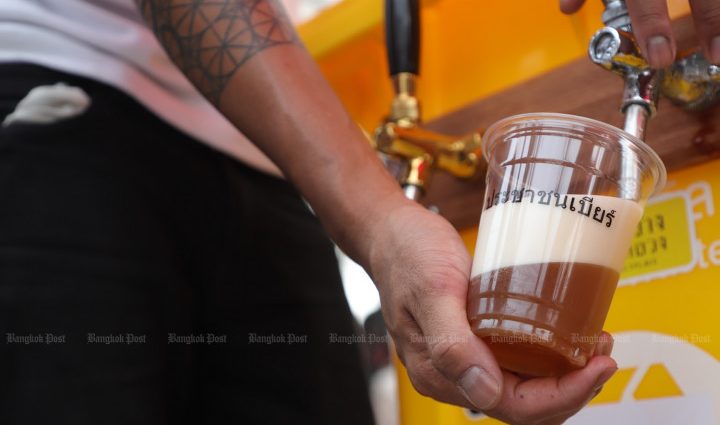Authorities expect excise tax losses to be offset by higher tourist spending
PUBLISHED : 2 Jan 2024 at 17:11

The cabinet has approved tax cuts on alcoholic beverages and entertainment venues to boost tourism, a government spokesperson said on Tuesday.
The excise tax on wine will be reduced from 10% to 5% and on local liquor from 10% to zero, Chai Wacharonke told reporters, adding that the excise tax on entertainment venues would be halved to 5%.
The tax measures will expire at the end of this year, he said.
The announcement comes after authorities last month extended opening hours for entertainment venues by two hours to 4am in Bangkok and other key tourist destinations. Interior Minister Anutin Charnvirakul is considering expanding the extended hours to other locations as well.
Losses of tax revenue would be offset by additional tourist receipts, said Lavaron Sangsnit, permanent secretary of the Ministry of Finance.
In the 2023 fiscal year that ended on sept 30 last year, the Excise Department collected 177.6 billion baht in alcohol, beer and beverage taxes. The figure included 64.17 billion baht from alcoholic beverages, 86.5 billion from beer and 26.95 billion baht from other beverages.
Tourism is a key driver of Southeast Asia’s second-largest economy. Last year, the country reached its target of 28 million international tourists, generating 1.2 trillion baht, government data showed.
In 2024, it is targeting more than 34 million foreign arrivals, Mr Lavaron said.
The Move Forward Party has been outspoken in its support of small-scale local brewers and distillers, saying that current tax and other regulations prevent all but a handful of giant players from competing successfully.
It has championed what it called a Progressive Liquor Bill that would remove some of the impediments in the current laws.

